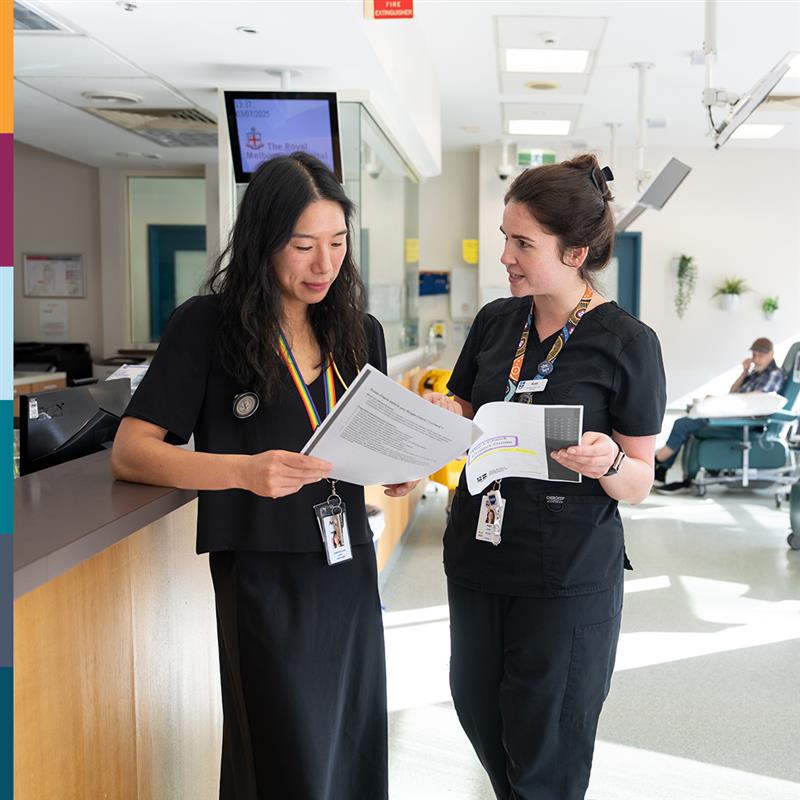Media release
From:
The first patients have been recruited into a landmark study at the newly launched Snow Centre Research Clinics, a bold initiative designed to accelerate the translation of discoveries in immune disease from the laboratory to the clinic.
The clinics will enable patients to participate in cutting-edge research, while giving scientists access to clinical data and biosamples – including blood tests – that will drive faster development of new therapies and diagnostics. The clinics are part of the Snow Centre for Immune Health, a partnership between WEHI and the Royal Melbourne Hospital (RMH) and supported by $100 million over ten years from the Snow Medical Research Foundation.
Based at the RMH, the clinics will initially focus on four major disease areas: primary immune deficiencies, allergies and asthma, autoimmunity, and kidney transplantation. The team is also looking to recruit healthy participants to the study to analyse samples from people with healthy immune systems.
“Recruiting the first patients into the Snow Research Clinics is a great milestone,” Professor Jo Douglass AO, Co-Director of the Snow Centre for Immune Health and Director of Research at the RMH, said.
“We’re grateful to the patients for giving Snow Centre researchers access to rich data and providing us this opportunity to better understand immune health. This first key step is a wonderful achievement for people with immune diseases in Australia.”
Prof Douglass said immune diseases were common, with many taking years to properly diagnose and many resulting in debilitating effects or requiring life-long treatment.
“Overall, one-in-five people experience an allergic disease and one-in-ten may develop an autoimmune disease such as rheumatoid arthritis or lupus,” she said.
“Patients with immune disorders often endure a long diagnostic journey – in the case of immune deficiencies often lasting up to eight years. While symptoms may appear similar across individuals, treatment responses can vary significantly. This uncertainty can delay effective care, sometimes causing further health complications, and it also takes a heavy emotional and mental toll.”
Melbourne woman Christine Bell was one of the first RMH patients recruited into the Snow Research Clinics. Christine has lived with polycystic kidney disease her entire life. Her mother tragically died as a result of the disease at age 35, and her sons live with the condition too.
Twenty years ago, the genetic condition led her to her first kidney transplant – a gift generously donated by her husband. But with that kidney now declining, she began dialysis three years ago and may soon require a second transplant. She said any research that could improve her outcomes – or those of others – was worthwhile.
“I have had 20 years of a normal life that I wouldn’t otherwise have had,” Christine said.
“That’s what motivated me to say yes. If doing this research helps other people, take my blood!”
Clinician-scientist Dr Stephanie Kuo, Renal Fellow at the Snow Centre for Immune Health and a doctor under the RMH’s Nephrology service, is leading research to explore if there are better ways to assess the immune system in kidney transplant patients.
“We're also keen to know if the immune system changes as we age,” she said.
“The clinics enable us to bridge clinical nephrology and biomedical science to advance precision medicine.”
Tom Snow, Chair of the Snow Medical Research Foundation, said the organisation’s goal is to empower transformational change.
“Our family looks to empower bold, transformative research across Australia by backing the best and brightest researchers and resourcing them with the tools they need to be world-class,” he said.
"Our ultimate goal is to support research that will help transform the lives of so many Australians with immune disease. With nearly one-in-five affected by allergic disease and one-in-ten living with autoimmunity, the need has never been greater.
“Our family believes the Snow Centre for Immune Health will truly change the way we treat disease, and we are proud to be part of it.”
We are seeking patients undergoing treatment for primary immune deficiencies, allergies and asthma, autoimmunity, and kidney transplantation, as well as healthy donors to participate in the Snow Centre study.
For more information and to find out if you’re eligible, visit: https://www.thermh.org.au/about/community-partnerships/snow-centre-for-immune-health



 Australia; VIC
Australia; VIC


